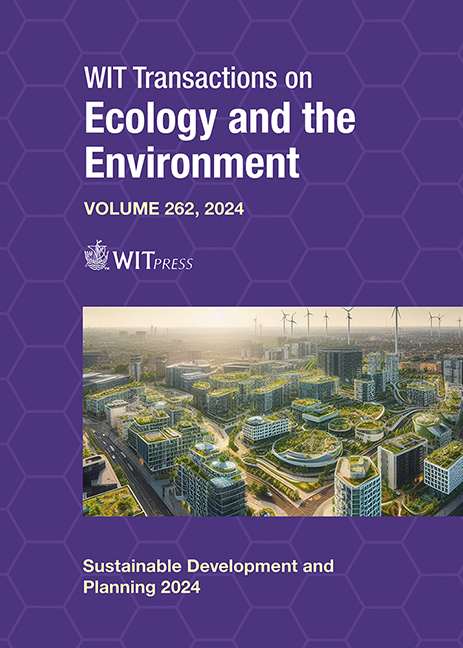A SUSTAINABLE AND CIRCULAR APPROACH TO FOOD SYSTEMS IN UNIVERSITIES: AN EXPLORATION OF POTENTIAL DIRECTIONS AND GOOD PRACTICES
Price
Free (open access)
Transaction
Volume
262
Pages
12
Page Range
1005 - 1016
Published
2024
Paper DOI
10.2495/SDP240831
Copyright
Author(s)
RAMONA GIUREA, ANCA TULBURE, CRISTINA-ANCA DANCIU, OTILIA-CRISTINA MURARIU, LILIANA GEORGETA POPESCU, LUCA ADAMI, FABIO CONTI, ELENA CRISTINA RADA
Abstract
The paper raises awareness of the importance of involving universities in the process of sustainable development in relation to food systems and with the implementation of food quality principles on consumer safety. The aim is to explore the concept of implementing a sustainable approach to food systems in universities by a bibliometric and content analysis. Drivers for the adoption of good practices in order to create a food system that supports environmental, social and economic well-being in agreement with SDGs both on campus and beyond were considered, including aspects regarding the attention to consumer health by ensuring the availability of quality, safe products. With the increasing global concern for sustainability and the growing recognition of the impact of food systems on the planet, universities have a unique opportunity to lead by example and promote sustainable practices within their campus. The paper presents key components of sustainable food system development in universities with references from the specific literature. Nowadays, the concerns of a sustainable food system development create a food system that is environmentally friendly, socially just, economically viable, and capable of meeting the nutritional needs and requirements in terms of product quality and safety assurance of the current and future generations. By implementing sustainable food system development, universities aim to create a positive impact on the environment, enhance student and staff learning experiences, support local communities and contribute to a more sustainable food future. Also, embracing sustainable practices, universities can become catalysts for change and inspire future generations to adopt sustainable food consumption habits.
Keywords
sustainable development, circular economy, universities, food systems, food quality management, municipal solid waste, safety and quality assurance





